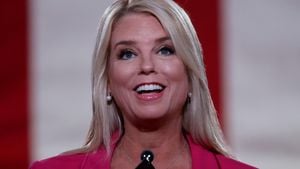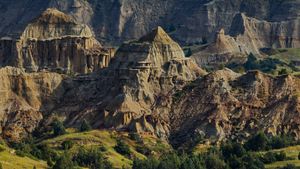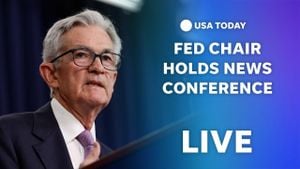At the COP29 climate summit currently taking place in Baku, Azerbaijan, the atmosphere is charged with both anticipation and tension as countries square off over the pivotal issue of climate finance. The stakes have never been higher, with developing nations and activists demanding action and accountability from wealthier nations, who are perceived as the primary historical offenders of climate change.
A key focal point of the negotiations revolves around the urgent need for funding to help poorer countries tackle the impacts of climate change. There’s broad consensus among negotiators and delegates: trillions of dollars are required annually for climate adaptation measures, yet the method of raising these funds remains fiercely contested.
On the second day of COP29, leaders such as Ali Mohamed, Kenya’s climate envoy, highlighted the growing ire surrounding funding distribution. He emphasized the convoluted “how, where, by whom?” as many grapple with pinpointing contributors to this financial pool. Historically, nations agreed on $100 billion per year to assist those most vulnerable to climate impacts, but this goal is now seen as pathetically inadequate.
“For decades, wealthy nations pledged $100 billion annually to support vulnerable countries,” stated Gaston Browne, Prime Minister of Antigua and Barbuda, during his address. "Yet these promises have largely gone unfulfilled.” This sentiment reverberates through the halls of the summit, anchoring the tension among diverse representatives.
The call from developing nations is loud and clear: raise the pledge to $1 trillion per year. Various leaders echoed this plea, including those from Pakistan, African nations, and small island states, each emphasizing the systemic injustice rooted at the heart of climate negotiations.
Central to the debates is how to classify who qualifies as contributing to global climate finance. Under existing guidelines established in the 1994 UN Framework Convention on Climate Change, only developed nations are bound to provide these funds. Yet, many developed countries, wary of their increasing emissions, argue for the inclusion of wealthier nations not originally listed, like the UAE and Singapore, to share the financial burden.
This suggestion did not sit well with developing nations, who argue it dilutes the established responsibilities of the richest countries. The African group of nations voiced strong objections, arguing, "The Convention is very clear. Developed countries must lead. We cannot reopen the Convention for negotiation."
While developed nations have yet to offer concrete figures during discussions, they acknowledge the necessity for substantial financial contributions. Still, they express concerns about the ability to gather such sums alone and advocate for the participation of larger economic players. They suggest criteria based on economic performance and greenhouse gas emissions to broaden the pool of contributors.
The newly released draft agreement came after the previous iteration was rejected, indicating deep divisions among parties. This latest draft proposes various paths to achieve climate goals, including ambitious sums—ranging from $1 trillion to $2 trillion—that again underline the stark differences between developed and developing nations.
Another equally troubling concern entering the conversation is the frequency and intensity of climate disasters around the globe. With many developing nations already grappling with poverty and lack of infrastructure, the increasing urgency for immediate financing cannot be overstated.
A high priority for reform acknowledged by the summit was the clarification on what counts as "climate finance." Some nations and organizations have accused funding bodies like the Asian Infrastructure Investment Bank of misrepresenting investments—such as fossil fuel projects—as climate finance. Such actions raise questions about the integrity of how and to what end funds are allocated.
Beyond the finance discussions is the glaring issue of fossil fuel dependency and projected expansions. Most prominently, Brazil's updated climate plan to cut its emissions 59% to 67% by 2035 relies heavily on managing its forests. Yet, at the same time, Brazil is anticipating boosting oil and gas production, which contradicts their environmental goals. This dual approach—setting ambitious climate goals coupled with planned fossil fuel growth—has drawn scrutiny and criticism from environmentalists and other nations.
Headway has not been nonexistent, with significant announcements from multilateral development banks (MDBs) pledging to increase climate financing to about $170 billion per year by 2030, up 30% from last year's record. Majority of these funds are earmarked for developing nations. Still, the funding will only be significant if MDBs are empowered by the moral and economic backing of their key investor nations.
With so much yet undecided, the urgency of the matter is tangible among negotiators. With only days left until ministers arrive for make-or-break talks, there's anxiety around the clock as final agreements on climate finance must be reached.
This deep-seated tension exacerbates the notion of trust between the involved nations, reminiscent of the negotiations leading up to the Paris Agreement. Historical emissions and existing wealth disparities echo through these discussions, as developing nations push for sustained commitments from those who contributed to the climate crisis.
The narrative is clear: developed countries must step up to their responsibility, redefining their role from passive observers to active participants. The coming days at COP29 will be integral, setting the stage for not only immediate funding needs but also reshaping how global climate finance is structured for years to come. This delicate dance between the financial contributions and joint climate objectives is more than just words on paper; it's about survival, equity, and the planet's future.



